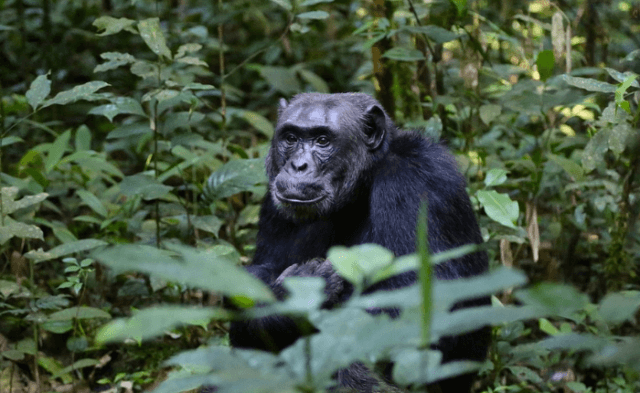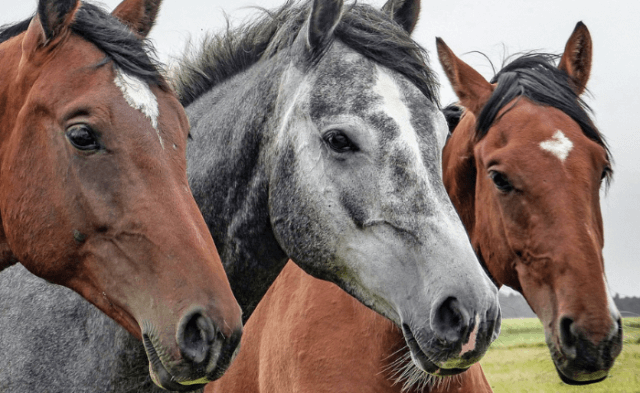By Sergeant Carla Gunn, U.S. Army (Ret.)
The U.S. Army now permits the use of weapons to wound dogs, monkeys and other animals in misguided laboratory experiments after a decades-long ban. This perplexing about-face is disturbing and shortsighted and, above all, deprives injured troops of the best available human-relevant scientific research. The Army must do another about-face on this policy.
In 1983, PETA successfully campaigned to shut down a U.S. Department of Defense “wound lab” in which dogs, goats and other animals were shot with high-powered weapons, supposedly to study human wounds and how they heal. The campaign resulted in the first-ever permanent ban on shooting dogs and cats in wound labs.
The Army then issued Regulation 40-33 in 2005, banning the use of dogs, cats, marine animals and other primates in tests that developed “biological, chemical or nuclear weapons.”
But all this changed in 2020 after the U.S. Army Medical Research and Development Command quietly issued Policy 84, which explicitly allows “[t]he purchase or use of dogs, cats, nonhuman primates, or marine mammals to inflict wounds upon using a weapon for the purpose of conducting medical research, development, testing, or evaluation ….”
In March 2022, PETA uncovered this policy shift and filed a public records request asking for documentation of these weapon-wounding tests on animals. The Army initially said there are in “excess of 2,000 pages” of responsive documents. It later backtracked, stating that there is only one responsive experimental protocol, which an official claimed is “classified … in the interest of national defense or foreign policy.”
PETA has appealed, seeking the release of a redacted version of the requested information, but has yet to hear from the Army. We also sent a letter to Secretary of the U.S. Army Christine Wormuth urging her to reinstate the previous ban on such tests. And we escalated the matter through a complaint to her boss, Secretary of Defense Lloyd J. Austin III. We’ve received no reply.
However, in October of last year, a few months after PETA submitted our records request, an Army spokesperson issued a statement saying the department had “no ongoing animal wounding programs” and that it “[did] not have any studies related to wounding cats or dogs.”
This is misleading, given that PETA has confirmed with the U.S. Army Medical Command that at least one recent “classified” weapon-wounding testing protocol using dogs, cats, monkeys or marine animals exists. Furthermore, in March of this year, Politico.com reported that the Pentagon had recently exposed primates to “pulsed radio frequency” directed-energy weapons. The Army has also issued a $750,000 taxpayer-funded grant active through September of this year for a brain injury experiment that involves bombarding 48 ferrets with directed-energy weapons, such as radiofrequency waves, in an attempt to mimic the symptoms of Havana syndrome.
Maiming animals doesn’t reveal anything about how humans heal from similar wounds. When studying wound-healing phenomena, dogs, cats, monkeys, dolphins, ferrets and others are poor stand-ins for humans, at best. It may be overstating the obvious, but the significant physiological and biological differences between humans and other animal species complicate and render useless the results of tests on nonhuman species when it comes to outcomes for humans.
Alternatives to this bloodshed exist. Minimally invasive studies have used healthy human volunteers to develop models for studying how wounds heal. New-generation molecular tools that require only small amounts of human skin tissue are also available. And a modern in vitro model to study wound healing has been developed by researchers at Harvard and Boston universities.
These superior research methods don’t use animals, and their results are directly applicable to humans. Mission accomplished.
The Army is fighting a losing battle. Not only is intentionally wounding animals with weapons gruesome, it also simply can’t provide the best-available science-backed information required to increase the combat readiness of our military and help wounded fighters. The guardians of our freedom deserve no less than the best, including the support of technologically advanced, animal-free, human-relevant research methods instead of archaic, grotesque, and useless weapon-wounding tests on animals.
Carla Gunn is a senior technical project manager for People for the Ethical Treatment of Animals (PETA).





